Are you experiencing pain or discomfort in your mouth, particularly in the back of your jaw? If so, it’s possible that your wisdom teeth are causing problems. Wisdom teeth, also known as third molars, are the last set of teeth to emerge in the back of your mouth. For many people, these teeth can cause pain, infection, and other issues that require extraction.
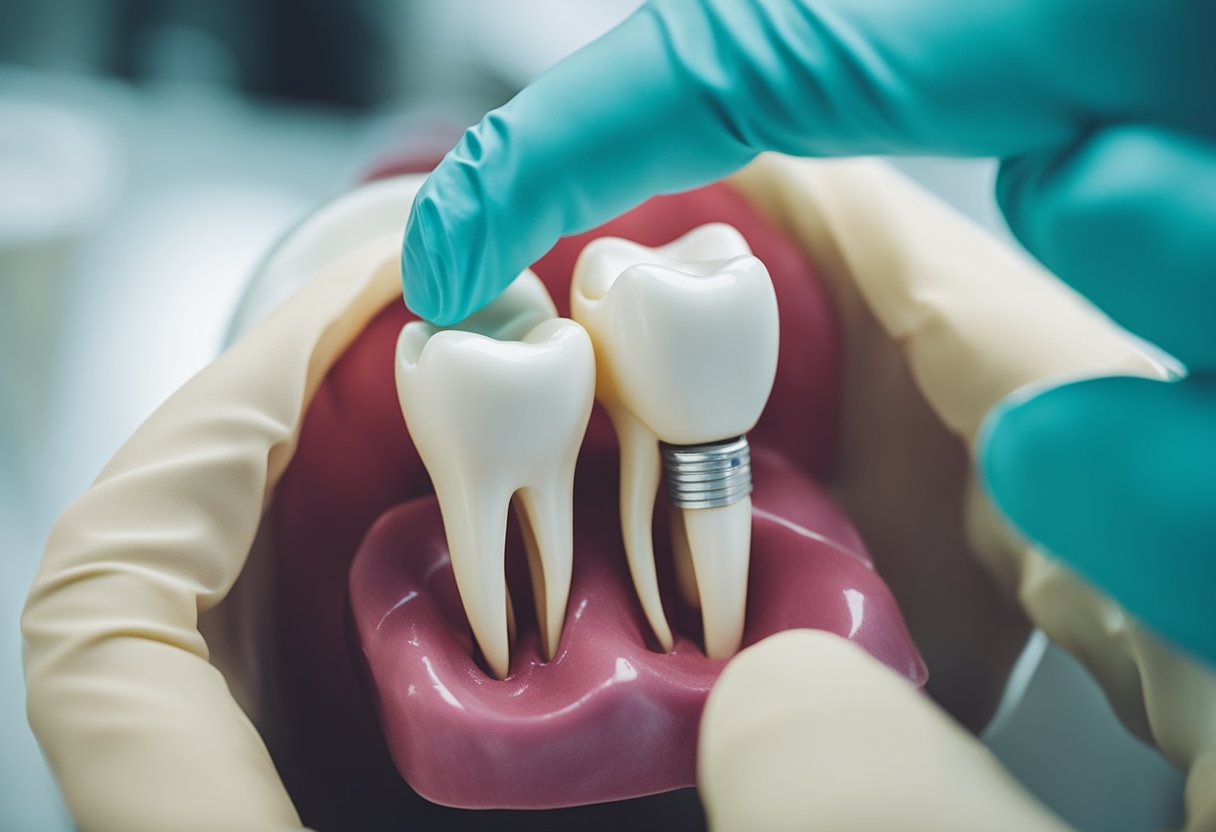
If you’re considering wisdom tooth extraction in Singapore, you’re not alone. Many people experience problems with their wisdom teeth and need to have them removed. Fortunately, there are many skilled dental specialists in Singapore who can perform this procedure safely and effectively. In this article, we’ll explore everything you need to know about wisdom tooth extraction in Singapore, including the procedure, anaesthesia options, potential complications and risks, post-extraction care and recovery, and more.
Key Takeaways
- Wisdom teeth can cause pain, infection, and other issues that require extraction.
- There are many skilled dental specialists in Singapore who can perform wisdom tooth extraction safely and effectively.
- Understanding the procedure, anaesthesia options, and post-extraction care is important for a successful recovery.
Understanding Wisdom Teeth
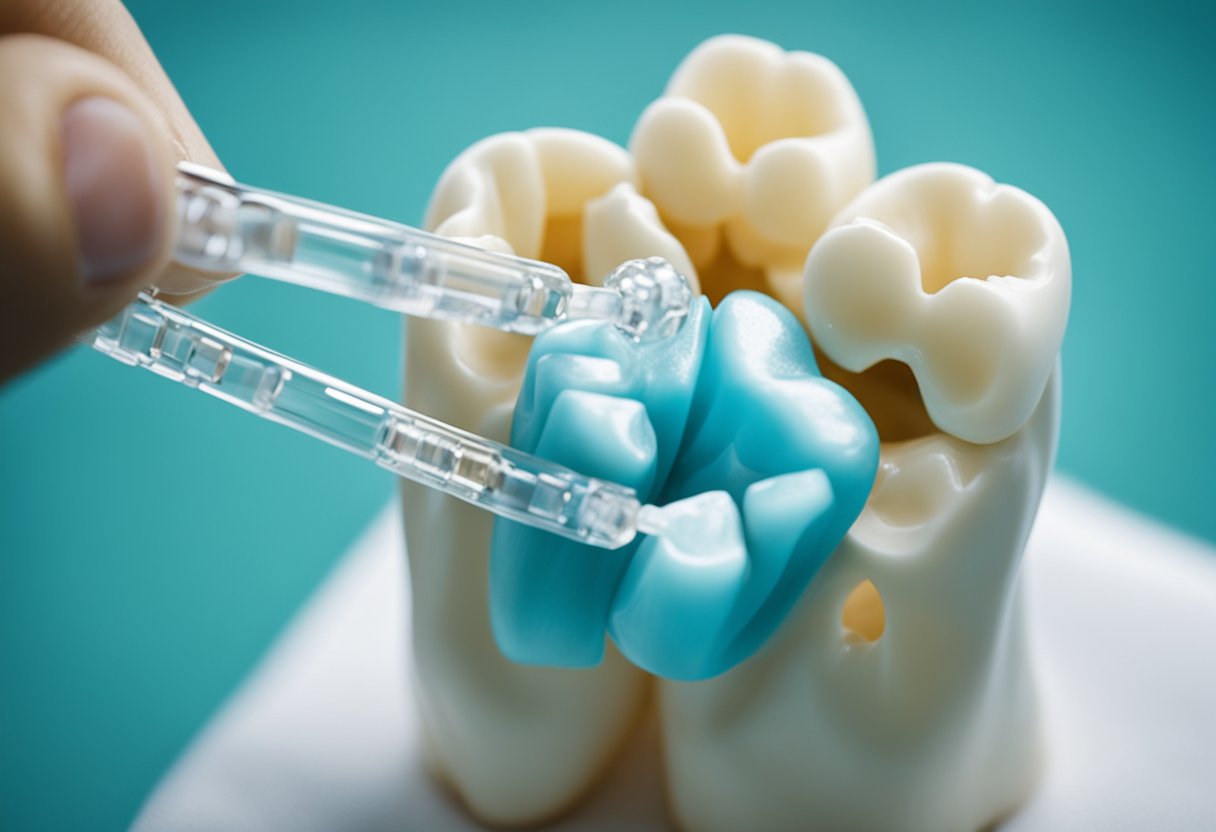
You may have heard of wisdom teeth, also known as third molars. These teeth are the last set of molars to develop and usually emerge between the ages of 17 and 25. Most people have four wisdom teeth, two on the top and two on the bottom.
Wisdom teeth can cause problems if there isn’t enough space for them to grow properly. They may become impacted, meaning they are stuck in the jawbone and cannot emerge fully. This can cause pain, swelling, and infection.
Even if your wisdom teeth are not causing any problems, your dentist may recommend their removal. This is because wisdom teeth are difficult to clean and can be more prone to decay and gum disease than other teeth.
If you do need to have your wisdom teeth removed, there are two main types of procedures: a simple extraction and a surgical extraction. The severity of your case will determine which procedure is necessary. A simple extraction is usually done under local anesthesia, while a surgical extraction may require general anesthesia.
Overall, understanding your wisdom teeth and their potential impact on your oral health is important. Regular dental check-ups can help identify any issues early on and prevent more serious problems from developing.
Why Do Wisdom Teeth Need Extraction
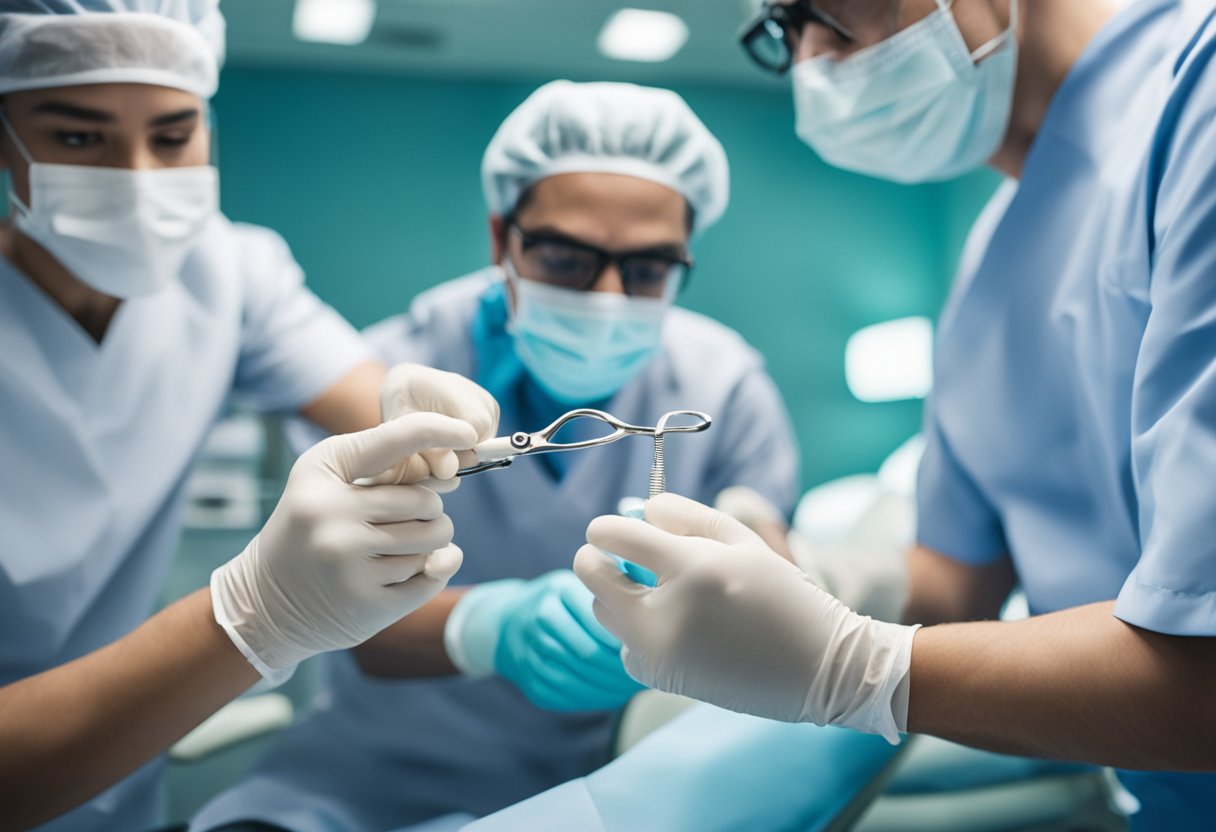
If you’re experiencing discomfort or pain in the back of your mouth, it may be due to your wisdom teeth. Wisdom teeth, also known as third molars, are the last set of teeth to emerge, often between the ages of 17 and 25. While some people have no issues with their wisdom teeth, others may experience a variety of problems that necessitate extraction.
One of the most common reasons for wisdom tooth extraction is impaction. When a tooth is impacted, it means it’s unable to emerge fully or properly through the gum line. This can lead to pain, swelling, and infection. Impacted wisdom teeth may also damage nearby teeth or cause cysts.
Tooth decay is another reason why wisdom teeth may need to be extracted. Because wisdom teeth are located at the back of the mouth, they can be difficult to clean properly, making them more susceptible to decay and gum disease. When left untreated, tooth decay can lead to pain, infection, and even tooth loss.
Misaligned wisdom teeth can also cause problems. When the teeth don’t emerge properly, they can cause overcrowding and disrupt the bite, leading to jaw pain and difficulty chewing. Misaligned teeth can also make it more difficult to maintain good oral hygiene, leading to plaque buildup and gum inflammation.
In some cases, removing wisdom teeth is done as a preventative measure to avoid future problems. Your dentist may recommend extraction if they predict that your wisdom teeth will cause issues down the line. While there are risks associated with any surgery, the procedure is generally safe and can help prevent future dental problems.
Wisdom Tooth Extraction Procedure
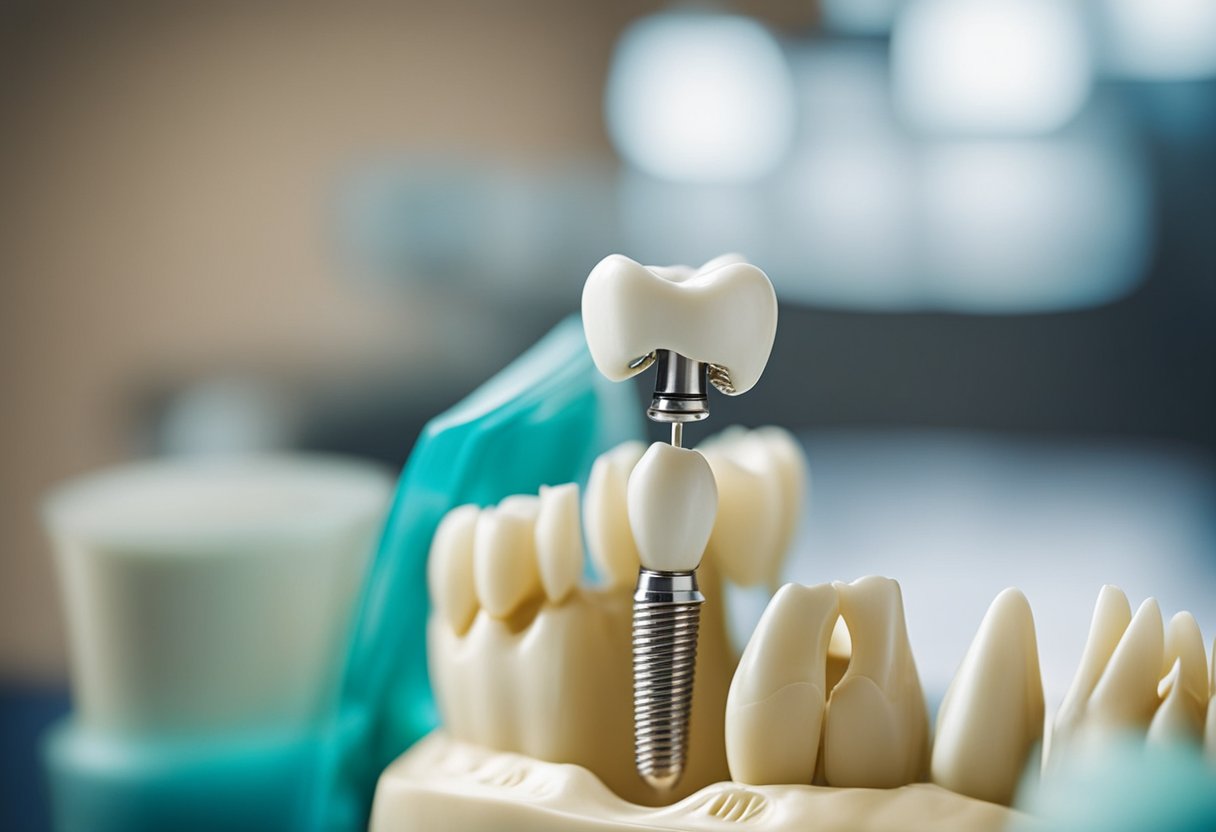
Are you about to undergo wisdom tooth extraction in Singapore? Knowing what to expect during the procedure can help ease your worries and ensure a smooth recovery.
There are two types of wisdom tooth extractions: simple extraction and surgical extraction. Simple extraction is performed on a tooth that has fully erupted and can be easily removed with forceps. On the other hand, surgical extraction is necessary for teeth that are impacted or have not fully erupted. This procedure requires an incision to be made in the gum tissue and sometimes the tooth needs to be removed in pieces.
Before the procedure, your dentist will administer local anesthesia to numb the area around the tooth. If you are anxious or nervous, you may also be given sedation to help you relax. Once you are numb, the dentist will begin the extraction. For simple extractions, the tooth is loosened with an instrument called an elevator and then removed with forceps. For surgical extractions, the dentist will make an incision in the gum tissue and may need to remove bone around the tooth to access it.
After the tooth is removed, the dentist will clean the extraction site and may place stitches to help it heal. You will be given gauze to bite down on to help stop any bleeding. The entire procedure usually takes around 30-60 minutes and you will be able to go home the same day.
It is normal to experience some pain and swelling after the procedure. Your dentist will prescribe pain medication and provide instructions on how to care for the extraction site. Be sure to follow these instructions carefully to ensure proper healing and prevent infection.
In summary, wisdom tooth extraction in Singapore can involve either a simple or surgical extraction procedure. Your dentist will administer local anesthesia and possibly sedation to help you relax. After the tooth is removed, stitches may be placed to aid in healing. Following your dentist’s post-operative instructions is crucial for a smooth recovery.
Anaesthesia Options

When it comes to wisdom tooth extraction, there are different anaesthesia options to choose from. The type of anaesthesia used depends on several factors, including your health condition, the number of wisdom teeth to be removed, and the level of surgical complexity.
Local anaesthesia is a common option for wisdom tooth extraction. It involves injecting a numbing agent into the area around the tooth being removed. With local anaesthesia, you will be awake during the procedure, but you won’t feel any pain. This option is suitable for simple extractions that don’t require significant surgical intervention.
Intravenous sedation is another option for wisdom tooth extraction. It involves administering medication through an IV line to help you relax and feel drowsy during the procedure. With IV sedation, you will be awake but won’t remember much of the procedure. This option is suitable for more complex extractions or if you experience anxiety or fear during dental procedures.
General anaesthesia is an option for wisdom tooth extraction, especially for complex cases. It involves administering medication that will put you to sleep during the procedure. You won’t be aware of the procedure and won’t feel any pain. This option requires careful monitoring of your vital signs and may require additional recovery time.
Overall, the choice of anaesthesia for wisdom tooth extraction depends on several factors, including your preference, the complexity of the procedure, and your health condition. Your dentist or oral surgeon will discuss the different options with you and recommend the best option for your needs.
Potential Complications and Risks
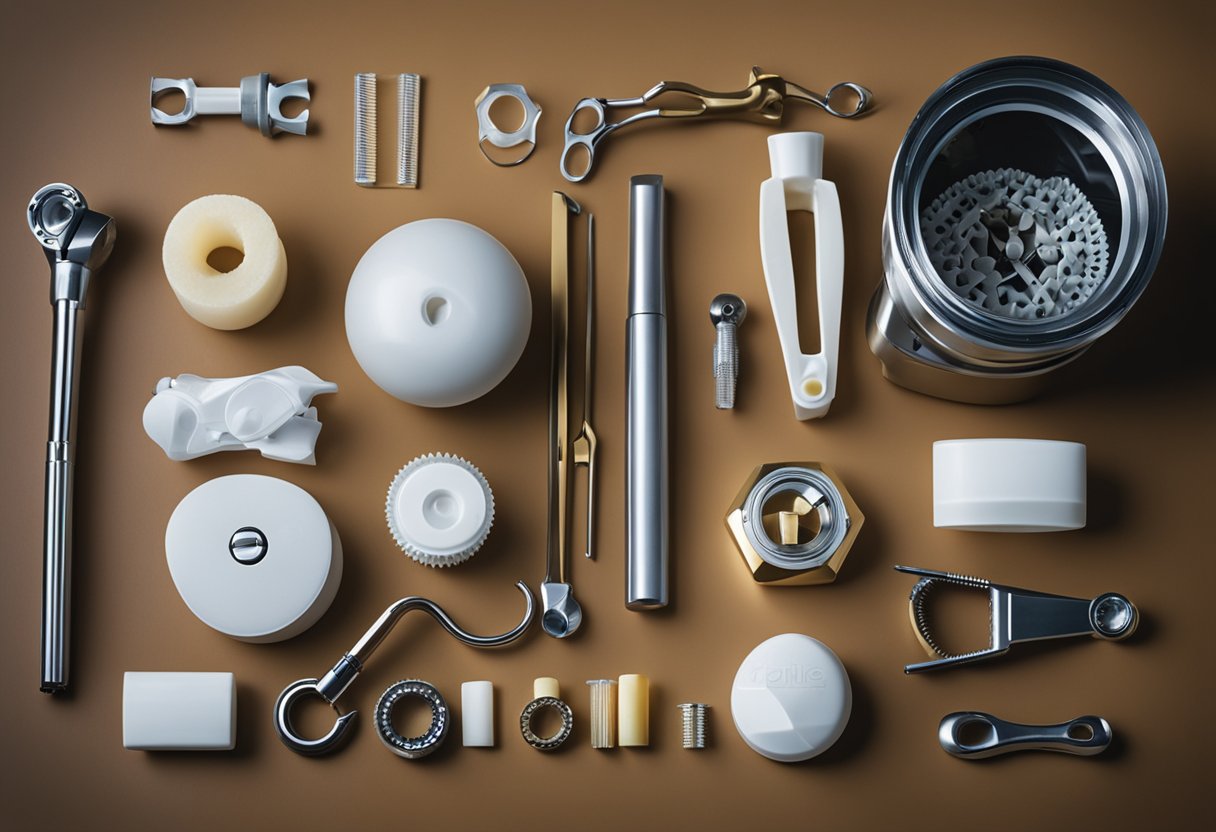
While wisdom tooth extraction is a common procedure, it’s important to be aware of the potential complications and risks involved. Here are some of the most common ones:
- Swelling: It’s normal to experience some swelling after the procedure, but it should go down within a few days. You can apply an ice pack to the affected area to help reduce swelling.
- Infection: Infection is a risk with any surgical procedure, and wisdom tooth extraction is no exception. Your dentist will prescribe antibiotics to help prevent infection, but it’s important to keep the extraction site clean and follow all post-operative instructions.
- Bleeding: Some bleeding is normal after the procedure, but if it continues for more than a few hours, you should contact your dentist. You can apply gentle pressure to the extraction site with a piece of gauze to help stop the bleeding.
- Nerve damage: Nerve damage is a rare but serious complication of wisdom tooth extraction. It can cause numbness or tingling in the lips, tongue, or cheek. Your dentist will take steps to minimize the risk of nerve damage, but it’s important to be aware of the possibility.
- Dry socket: Dry socket is a painful condition that can occur when the blood clot that forms in the extraction site is dislodged or dissolves too soon. It can cause severe pain and delay healing. Your dentist will give you instructions on how to prevent dry socket.
- Blood clots: Blood clots can form in the extraction site, and they are an important part of the healing process. However, if a blood clot becomes dislodged, it can cause bleeding and delay healing. Your dentist will give you instructions on how to prevent dislodging the blood clot.
Overall, the risks of wisdom tooth extraction are relatively low, and the benefits of removing impacted or problematic wisdom teeth usually outweigh the risks. Just be sure to follow all post-operative instructions and contact your dentist if you experience any complications or concerns.
Post-Extraction Care and Recovery

Congratulations, you’ve successfully had your wisdom teeth extracted! Now, it’s time to focus on post-extraction care and recovery. Here are some tips to help you stay comfortable during the healing process:
- Take it easy: Avoid strenuous physical activity for the first few days after the extraction. Rest as much as possible and avoid bending over or lifting heavy objects.
- Manage discomfort: It’s normal to experience some discomfort after the extraction. You can manage this by taking pain medication as prescribed by your dentist. Applying an ice pack to your cheek can also help reduce swelling and discomfort.
- Relaxation techniques: If you’re feeling anxious or stressed, try relaxation techniques such as deep breathing or meditation. This can help you stay calm and relaxed during the recovery process.
- Numbness: It’s common to experience numbness in your mouth and lips after the extraction. This should go away on its own within a few hours. Avoid chewing or biting on the numb area to prevent injury.
- Diet: Stick to soft foods for the first few days after the extraction. Avoid hot, spicy, or acidic foods that can irritate the extraction site. Drink plenty of water to stay hydrated.
- Oral hygiene: Avoid brushing or flossing near the extraction site for the first 24 hours. After that, gently rinse your mouth with salt water to help promote healing. Avoid using mouthwash or other products that contain alcohol.
By following these tips, you can help promote a comfortable and speedy recovery after your wisdom tooth extraction. Remember to follow your dentist’s instructions and contact them if you have any concerns or questions.
The Role of Medisave in Wisdom Tooth Extraction
If you are planning to undergo wisdom tooth extraction in Singapore, you will be pleased to know that you can use your Medisave savings to pay for the procedure. Medisave is a national medical savings scheme that allows Singaporeans and Permanent Residents to save for their healthcare needs.
When it comes to wisdom tooth extraction, Medisave can be used to cover the cost of both day surgery and operations. The amount that can be claimed from Medisave depends on the complexity of the procedure and the number of teeth being removed.
For day surgery, you can claim up to $300 per day for daily charges, including investigations, medicines, and doctor’s attendance fees. For operations, the claimable amount ranges from $250 to $7,550 depending on the complexity of the procedure.
It’s important to note that only wisdom tooth surgeries can be claimed under Medisave. Other dental procedures, such as fillings and braces, are not covered.
To claim Medisave for your wisdom tooth extraction, you will need to ensure that the dental clinic you are visiting is a participating clinic under the Medisave Scheme. You will also need to provide the clinic with your NRIC and Medisave account details.
In summary, Medisave plays a crucial role in making wisdom tooth extraction more affordable for Singaporeans and Permanent Residents. By using your Medisave savings, you can offset the cost of the procedure and ensure that you receive the dental care you need without breaking the bank.
Costs and Subsidies for Wisdom Tooth Extraction in Singapore
If you’re considering getting your wisdom teeth removed in Singapore, one of the first things you’re likely wondering about is the cost. The cost of wisdom tooth extraction can vary depending on the type of procedure and the dental clinic chosen.
For simple wisdom tooth extraction, you can expect to pay anywhere from $150 to $350 per tooth. On the other hand, surgical wisdom tooth extraction can cost you between $650 to $1,550 per tooth. These prices are inclusive of GST and are based on the costs at i.Dental in Singapore.
If you have a CHAS (Community Health Assist Scheme) card, you may be eligible for subsidies on your wisdom tooth extraction. CHAS Blue cardholders can receive subsidies of up to $266.50 per tooth for surgical removal, while CHAS Orange cardholders can receive subsidies of up to $80.50 per tooth for simple removal.
It’s worth noting that the cost of wisdom tooth extraction is not the only factor to consider. If your wisdom teeth are causing problems such as bad breath or pain, it’s important to get them removed to prevent further complications.
In addition to CHAS subsidies, you may also be able to make a Medisave claim for your wisdom tooth extraction. The amount you can claim depends on the complexity of the procedure, and you will need a dentist’s recommendation to make a claim.
Overall, while the cost of wisdom tooth extraction in Singapore may seem high, it’s important to prioritize your dental health and seek treatment if necessary. With subsidies and Medisave claims available, there are options to help make the cost more manageable.
Choosing the Right Dental Specialist
When it comes to wisdom tooth extraction, it is crucial to choose the right dental specialist who can perform the procedure safely and effectively. Here are some tips on how to choose the right dental specialist for your wisdom tooth extraction:
Consultation
Before undergoing the procedure, it is important to have a consultation with the dental specialist. During the consultation, the specialist will examine your teeth and determine if you need to have your wisdom teeth removed. This is also an opportunity for you to ask any questions you may have about the procedure.
Dental Specialists
There are different types of dental specialists who can perform wisdom tooth extraction, including oral and maxillofacial surgeons and general dentists. Oral and maxillofacial surgeons are specialists who have undergone extensive training in surgery and can handle more complex cases. General dentists can also perform wisdom tooth extraction, but they may refer you to a specialist if your case is more complicated.
Dental Clinic
It is important to choose a dental clinic that is well-equipped to handle wisdom tooth extraction. Look for a clinic that has modern equipment and facilities, as well as experienced staff who can provide you with the best care possible.
NTUC Health Denticare
If you are looking for a cost-effective option for wisdom tooth extraction, NTUC Health Denticare offers both extraction and surgery at affordable prices. They also accept Medisave claims for eligible patients.
In summary, choosing the right dental specialist is crucial for a safe and effective wisdom tooth extraction. Make sure to have a consultation, consider different dental specialists, choose a well-equipped dental clinic, and consider cost-effective options like NTUC Health Denticare.
What to Expect During the Consultation
Are you nervous about your upcoming wisdom tooth extraction in Singapore? Don’t worry, the first step is a consultation with your dentist or oral surgeon, where they will go over everything you need to know and answer any questions you may have.
During the consultation, you can expect the following:
Experience
Your dentist or oral surgeon will have years of experience in performing wisdom tooth extractions, so you can trust that you’re in good hands. They will be able to provide you with a detailed explanation of the procedure and what to expect.
Examination
Before the procedure, your dentist or oral surgeon will conduct a thorough examination of your teeth and gums. They may also take X-rays to determine the position of your wisdom teeth and assess any potential risks or complications.
Treatment Plan
Based on the examination, your dentist or oral surgeon will create a personalized treatment plan that is tailored to your specific needs. This may involve extracting one or more wisdom teeth.
Check-Ups
Your dentist or oral surgeon will also schedule follow-up appointments to ensure that you are healing properly and to monitor your progress. It’s important to attend all of these check-ups to ensure a successful recovery.
Overall, the consultation is an important step in the wisdom tooth extraction process. It allows you to ask any questions you may have and to feel confident and prepared for the procedure. So, don’t hesitate to ask your dentist or oral surgeon any questions or concerns you may have during the consultation.
Merdeka and Pioneer Generation Subsidies
If you are a Merdeka or Pioneer Generation cardholder, you are eligible for dental subsidies when you undergo wisdom tooth extraction in Singapore. This means that you can enjoy affordable dental services without worrying about the high costs.
Under the CHAS scheme, Merdeka Generation and Pioneer Generation cardholders can receive subsidies for tooth extractions, including routine wisdom tooth extractions that do not require surgery. The subsidies range from $28.50 to $78.50, depending on the complexity of the case and location of the tooth.
Citizens with a Merdeka Generation or Pioneer Generation card can also enjoy CHAS subsidies regardless of their monthly income or annual value of home. Additionally, citizens with the Public Assistance card can present their card to receive the full CHAS subsidies without applying for CHAS.
At NTUC Health Denticare, Merdeka and Pioneer Generation cardholders can receive subsidies of up to $261.50 per procedure for selected dental procedures, including wisdom tooth extraction. This can help to significantly reduce the cost of the procedure and make it more accessible for those who need it.
If you are a Merdeka or Pioneer Generation cardholder, it is important to take advantage of these subsidies and ensure that you receive the dental care you need. Talk to your dentist or healthcare provider to find out more about the available subsidies and how you can benefit from them.
Impact on Surrounding Teeth
When a wisdom tooth is impacted or infected, it can have a significant impact on the surrounding teeth. The neighbouring teeth can be affected in various ways, such as:
- Crowding: Wisdom teeth can push the neighbouring teeth, causing them to shift and become crooked. This can lead to bite problems and misaligned teeth, which can be costly to fix in the long run.
- Decay: If a wisdom tooth is infected or decayed, the bacteria can spread to the adjacent teeth, causing decay and cavities.
- Gum Disease: Wisdom teeth can also contribute to gum disease, which can affect the surrounding teeth. Gum disease can cause inflammation, bleeding, and even tooth loss.
- Damage: In some cases, wisdom teeth can damage the adjacent teeth by pushing against them too hard or causing trauma to the gums and jawbone.
Therefore, it is important to get your wisdom teeth checked regularly to prevent any potential damage to the surrounding teeth. If your dentist recommends removing your wisdom teeth, it is best to follow their advice to avoid any future dental problems.
Oral Hygiene Post Extraction
Congratulations, you have successfully extracted your wisdom teeth! Now, it’s time to take care of your oral hygiene to ensure a speedy recovery.
Firstly, it’s important to avoid rinsing your mouth for the first 24 hours after the extraction. This will allow the blood to clot and promote healing. After 24 hours, rinse your mouth gently with warm salt water to keep the extraction site clean.
It’s also important to maintain good oral hygiene to prevent infection. Brush your teeth gently, avoiding the extraction site, and use a soft-bristled toothbrush to avoid irritating the area. Flossing is also important but be gentle and avoid the extraction site.
Food particles can easily get stuck in the extraction site, so it’s important to avoid hard, crunchy, and sticky foods for the first few days after the extraction. Opt for soft foods like soups, smoothies, and mashed potatoes.
Your dentist may prescribe antibiotics to prevent infection, so make sure to take them as directed. If you notice any signs of gum infection, such as swelling, redness, or pus, contact your dentist immediately.
In summary, good oral hygiene is crucial for a speedy recovery after wisdom tooth extraction. Avoid rinsing your mouth for the first 24 hours, rinse gently with warm salt water after 24 hours, and maintain good oral hygiene to prevent infection. Avoid hard, crunchy, and sticky foods and opt for soft foods. Take antibiotics as directed and contact your dentist if you notice any signs of gum infection.
Frequently Asked Questions
How much does wisdom tooth extraction cost in Singapore?
The cost of wisdom tooth extraction in Singapore can vary depending on several factors such as the complexity of the procedure, the number of teeth to be extracted, and the dental clinic you choose. Generally, the cost can range from $500 to $2000 per tooth. However, some clinics offer Medisave-claimable surgeries which can lower the cost significantly.
Can I use Medisave for wisdom tooth extraction?
Yes, Medisave can be used to pay for wisdom tooth extraction in Singapore. The amount that can be claimed depends on the complexity of the procedure. Singaporeans and Permanent Residents can claim up to $350 for wisdom teeth surgery without tooth division, and up to $950 with tooth division.
What is the recovery time for non-surgical wisdom tooth extraction?
Recovery time for non-surgical wisdom tooth extraction can vary depending on the individual and the complexity of the procedure. In general, it takes about 3-5 days for the swelling and discomfort to subside. It is recommended to avoid smoking, drinking alcohol, and eating hard or spicy foods during the recovery period.
Does CHAS cover wisdom tooth extraction?
Yes, CHAS (Community Health Assist Scheme) covers wisdom tooth extraction in Singapore. However, the amount of subsidy depends on the type of procedure and the clinic you go to. It is recommended to check with your dental clinic to see if they accept CHAS and the amount of subsidy you can receive.
Can I go to work the day after wisdom tooth extraction?
It is not recommended to go to work the day after wisdom tooth extraction, especially if you have undergone a surgical procedure. It is best to rest for a few days to allow your body to heal and avoid any complications. If you have a non-surgical procedure, you may be able to return to work the next day, but it is still recommended to take it easy and avoid any strenuous activities.
Why are some experts advising against wisdom tooth removal?
Some experts advise against wisdom tooth removal if they are not causing any problems or pain. However, if the wisdom teeth are causing issues such as infection, pain, and difficulty chewing, it is recommended to have them removed to avoid further complications. It is best to consult with your dentist to determine if wisdom tooth removal is necessary for your case.




